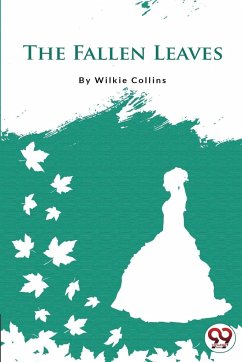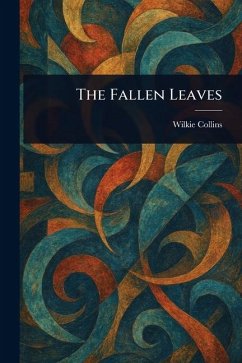
The Fallen Leaves
Versandkostenfrei!
Versandfertig in 1-2 Wochen
25,99 €
inkl. MwSt.

PAYBACK Punkte
13 °P sammeln!
In The Fallen Leaves, Wilkie Collins explores themes of social justice, personal redemption, and the consequences of moral choices. The novel follows Amelius Goldenheart, a young idealist who returns to England after being raised in a utopian community. His attempts to navigate a corrupt and hypocritical society lead him into a web of intrigue and social dilemmas. Through sharp critique, Collins tackles issues such as class disparity and the treatment of women, blending suspense with social commentary.












